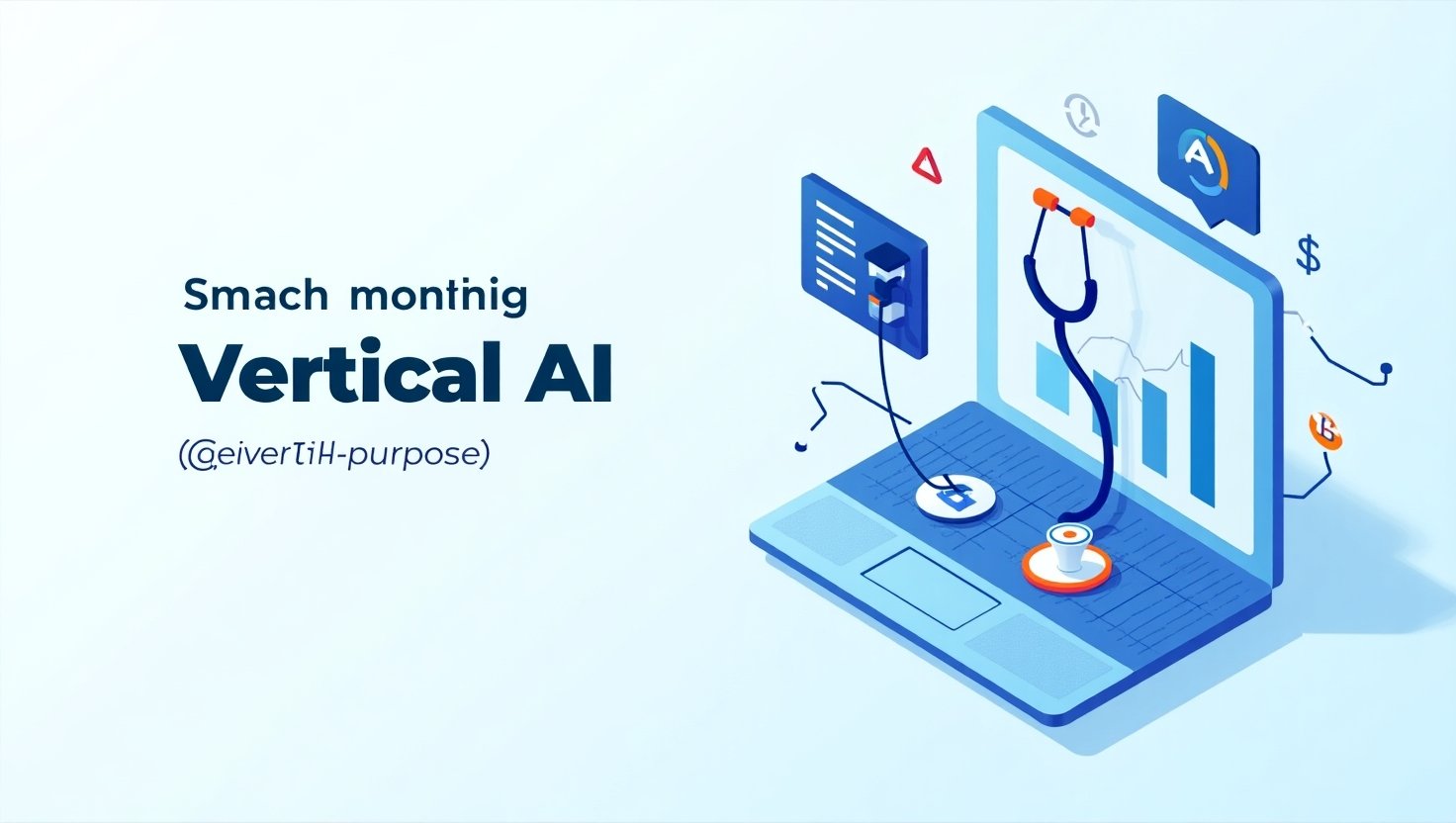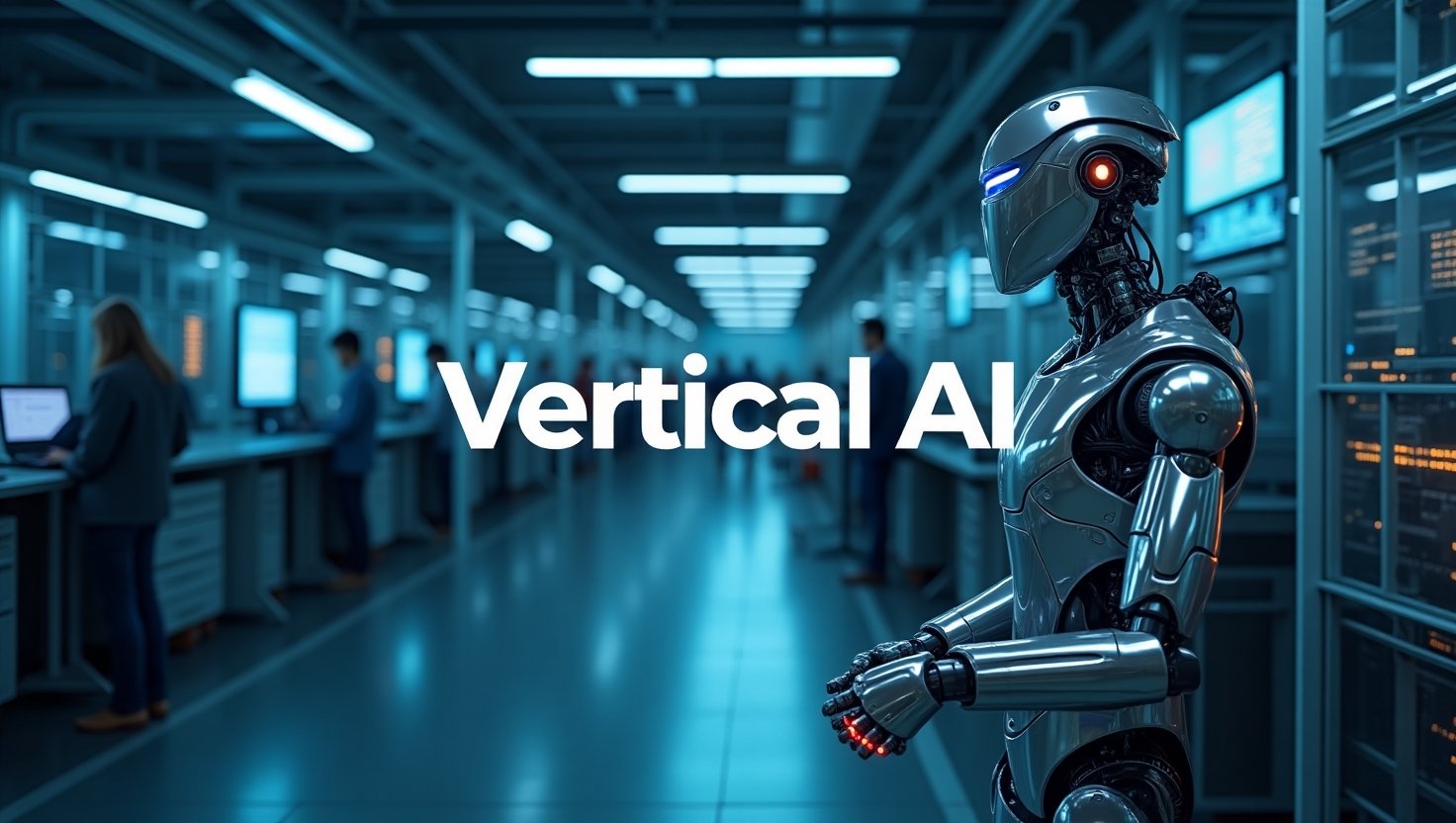In today’s rapidly evolving technological landscape, Vertical AI is not just a buzzword; it represents a fundamental shift in how artificial intelligence can cater to specialized industry needs. Unlike general-purpose AI, which often operates like a versatile luxury SUV, Vertical AI is designed akin to a delivery truck—intentionally crafted to excel in specific tasks that meet the precise demands of sectors such as healthcare, finance, and legal services. Its purpose lies in tackling complex, industry-specific challenges that standard AI models often overlook.
By focusing on tailored solutions, Vertical AI has proven its ability to integrate seamlessly into existing workflows, ensuring compliance while driving automation and efficiency. More significantly, it delivers real business value through enhanced accuracy, streamlined operations, and ultimately, improved outcomes.
In this article, we will explore not just what Vertical AI is, but how it transforms specialized industries into streamlined enterprises, positioning itself as an essential asset for organizations eager to unlock the full potential of artificial intelligence. Emphasizing the necessity for this type of AI, we will delve into its significant role in addressing industry-specific needs and the tangible benefits it offers over its more generic counterparts.

Benefits of Vertical AI in Industry-Specific Applications
Vertical AI is changing various industries by offering customized solutions that meet their distinct challenges. Here are some significant benefits:
-
Adaptability
Vertical AI systems are specifically designed for particular industries, making them very adaptable to unique processes and requirements. For example, Page.AI shows how AI can be finely tuned to improve diagnostic accuracy in healthcare, achieving a notable 23% increase compared to general models. -
Compliance with Regulations
In fields like healthcare and finance, where strict regulations exist, Vertical AI assists organizations in staying compliant. These systems are created with regulatory standards in focus, ensuring companies operate within legal boundaries and reducing risks tied to non-compliance. -
Automation of Complex Processes
One standout feature of Vertical AI is its capability to automate complex workflows. For instance, Upstart has utilized Vertical AI to automate 92% of its loan origination process, resulting in a 43% increase in approval rates. This level of automation not only makes operations smoother but also improves customer experience. -
Improved Outcomes
Beyond operational efficiency, the benefits of Vertical AI can be measured by improved results. For example, Page.AI’s accuracy in diagnostic processes exemplifies this, as its tailored approach has led to better patient outcomes by significantly increasing diagnostic precision.
Conclusion
Vertical AI not only streamlines operations but also fosters business growth and enhances precision across sectors. By honing in on specific industry needs, it effectively tackles complex challenges that generic AI cannot handle, making it a vital resource for organizations aiming to tap into the true potential of artificial intelligence.
| Feature | Vertical AI | General-Purpose AI |
|---|---|---|
| Adaptability | Tailored to specific industry needs | Versatile, can be applied across various sectors |
| Compliance | Built-in regulatory adherence for specific industries | Often requires additional customization for compliance |
| Automation | Highly automated workflows relevant to the sector | Offers automation, but may be less optimized |
| Industry Application | Focuses on particular fields like healthcare, finance | Suitable for a wide range of applications |
| Industry | Key Applications | Benefits | Challenges |
|---|---|---|---|
| Healthcare | Medical imaging, diagnostics | Increased diagnostic accuracy, faster patient care | High compliance standards, data privacy issues |
| Finance | Loan origination, credit scoring | Improved approval rates, reduced defaults | Adapting to market changes, regulatory hurdles |
| Legal | Contract analysis, case law research | Faster turnaround on case reviews, cost reductions | Complexity of legal guidelines, technology adoption |
| Manufacturing | Predictive maintenance, quality control | Reduced downtime, enhanced product quality | Initial implementation costs, employee training |
| E-commerce | Inventory management, customer personalization | Optimized supply chain, improved customer loyalty | Competition with larger retailers, data integration |
Case Studies of Successful Vertical AI Implementations
Vertical AI is making an undeniable impact across various sectors. Below, we explore how three pioneering companies—Page.AI, Atomwise, and Upstart—are leveraging Vertical AI for transformative success in their respective industries.
Page.AI: Transforming Healthcare Diagnostics
Page.AI is at the forefront of using AI to enhance diagnostic capabilities in the healthcare sector.
- Achievements: Page.AI utilizes machine learning technology to improve diagnostic accuracy, achieving a remarkable 23% increase over traditional models. This is particularly significant in medical imaging, where precise diagnoses are critical.
- Outcomes: By integrating Vertical AI, Page.AI has optimized workflows in radiology departments, leading to quicker turnaround times for diagnostic results and improving patient outcomes.
- Industry Impact: Page.AI’s technology not only boosts accuracy but also helps in training medical professionals through advanced imaging analysis, making it a vital tool in contemporary healthcare practices.
Atomwise: AI-Driven Drug Discovery
Atomwise enhances pharmaceutical research and drug discovery through its tailored AI solution, AtomNet.
- Achievements: Recognized as one of the World’s Most Innovative Companies in 2021 by Fast Company, Atomwise’s platform has facilitated the identification of small molecules for challenging diseases within extensive datasets. [source]
- Outcomes: The company has successfully executed over 750 research collaborations, predicting success rates of 74% for identifying novel compounds which have expedited drug discovery significantly. [source]
- Industry Impact: Atomwise’s AI technology reduces traditional drug discovery timelines, thus enabling faster research and contributing to advancements in treatments for diseases like Ebola and multiple sclerosis. [source]
Upstart: Redefining Credit Assessment
In the financial sector, Upstart is transforming how lending and credit assessment are conducted.
- Achievements: Upstart has developed an intelligent platform that evaluates applicants based on a broader range of criteria, including education and job history, rather than solely on credit scores.
- Outcomes: This revolutionary approach has enabled Upstart to automate 92% of its loan origination process, leading to a 43% increase in approval rates, thus broadening access to credit for underserved populations.
- Industry Impact: By adopting Vertical AI, Upstart has not only improved its operational efficiency but has also influenced how other financial institutions assess creditworthiness and manage risk.
These case studies showcase the tangible benefits of Vertical AI, proving its capability to drive remarkable improvements and successful outcomes in specialized industries, making it an invaluable asset for organizations aiming to harness its full potential.

Summary: Enhancing Business Value through Vertical AI
Vertical AI, tailored specifically for individual industries, has emerged as a transformative force, delivering substantial business value across multiple sectors including healthcare, finance, and legal. The AI applications in healthcare exemplify how industry-specific AI solutions can revolutionize operational efficiencies. Here are the key outcomes and insights:
Healthcare Sector
- Administrative Efficiency: AI-driven automation enhances revenue cycle management, with nearly 20% of hospitals reporting increased efficiency in insurance claims filing, yielding faster patient payments. [TempDev]
- Cost Savings: Incorporating AI is expected to save the U.S. healthcare system up to $150 billion annually by 2025. [AskFeather]
Finance Sector
- Risk and Compliance: Companies implementing Vertical AI for compliance checks have realized over 50% in cost benefits, ensuring adherence to regulatory standards. [Forbes]
- Fraud Detection: AI-powered systems can reduce false positives by up to 60% while identifying 98% of fraudulent transactions, bolstering security. [ReachAPX]
Legal Sector
- Contract Review: Law firms utilizing AI can reduce contract turnaround time by 40%, enabling faster service to clients. [Galton.AI]
- Cost Reduction: AI adoption in legal services can lead to 15-30% cuts in external counsel spending. [LinkedIn]
The adoption of Vertical AI not only enhances operational efficiency but also translates into significant cost savings and improved service delivery in specialized industries. As stated by industry experts, “Invest in vertical AI models that already fit your business. Focus on system fit, not flexibility, and you’ll unlock the true potential of AI.” This sentiment echoes across sectors, reinforcing the critical role of Vertical AI in shaping the future of business operations.
The Future Potential of Vertical AI
The future of Vertical AI is bright, with significant developments anticipated across various sectors. As organizations seek tailored solutions to stay competitive, the adoption of Vertical AI will surge, enabling companies to address industry-specific challenges more effectively. Various trends are influencing this evolution:
Growth Trajectory
- Healthcare: The global AI in healthcare market is projected to grow from $15.1 billion in 2022 to $187.95 billion by 2030 (source). With hospitals increasingly integrating AI for diagnostics and operational efficiency, over 90% are expected to adopt these technologies by 2025 (source).
- Finance: The market for AI in finance is forecasted to grow at a 23.37% CAGR from 2021 to 2028 (source). AI applications in fraud detection and risk management will be pivotal in generating between $200 billion to $340 billion annually in value across the banking sector (source).
- Manufacturing and Retail: AI adoption rates are increasing rapidly, with expected growth rates of 27.3% for AI in manufacturing and 30.3% in retail by 2033 (source). Retailers using AI saw an 8% increase in profit in 2023-2024, compared to competitors who did not (source).
Anticipated Developments
Vertical AI is set to enhance operational efficiency and drive performance optimizations in various sectors:
- Healthcare Innovations: Companies like Insilico Medicine are deploying AI for predictive diagnostics, potentially shortening drug development timelines (source). AI in medical imaging is transforming diagnostics, leading to more accurate and prompt detection of diseases (source).
- Financial Advancements: AI-driven credit assessment tools, such as those from Zest AI, enable lenders to evaluate applicants more effectively, which will expand access to credit (source). Moreover, fraud detection models like Feedzai’s are becoming crucial for safeguarding financial transactions (source).
- Manufacturing and Supply Chain Enhancements: The manufacturing industry will increasingly rely on AI for predictive maintenance, which can reduce downtime effectively (source). AI’s role in optimizing supply chains will be vital as companies look to manage costs and enhance productivity (source).
Competitive Advantage
Organizations that embrace Vertical AI can expect to stay ahead of their competition. By leveraging AI to improve their decision-making processes and operational efficiencies, businesses will not only address their unique challenges but also unlock new value propositions that differentiate them in the marketplace. As emphasized by industry leaders, investing in Vertical AI models tailored to specific business needs can lead to transformative results. Collectively, these developments present a significant opportunity for businesses willing to adopt and integrate Vertical AI.
Conclusion
In summary, Vertical AI stands as a transformative force in industries ranging from healthcare to finance and beyond. By targeting specific industry challenges, Vertical AI proves not only its relevance but also its effectiveness in delivering substantial business value. Companies like Page.AI and Upstart illustrate how tailored AI solutions can enhance diagnostic accuracy, automate workflows, and significantly improve operational efficiency.
The ability of Vertical AI to integrate seamlessly within existing processes, meet compliance needs, and provide precise solutions cannot be understated. As organizations strive for growth and sustainability, the adoption of Vertical AI presents a compelling opportunity.
Now is the time for businesses to consider the implementation of Vertical AI solutions that align closely with their specific operational needs. By investing in specialized AI models, organizations can unlock unprecedented levels of efficiency and competitive advantage.
Take the leap. Start exploring Vertical AI today to transform your operations and stay ahead of the competition. The future of your industry depends on your ability to adapt and innovate, so embrace the unique potential that Vertical AI holds for your business.


